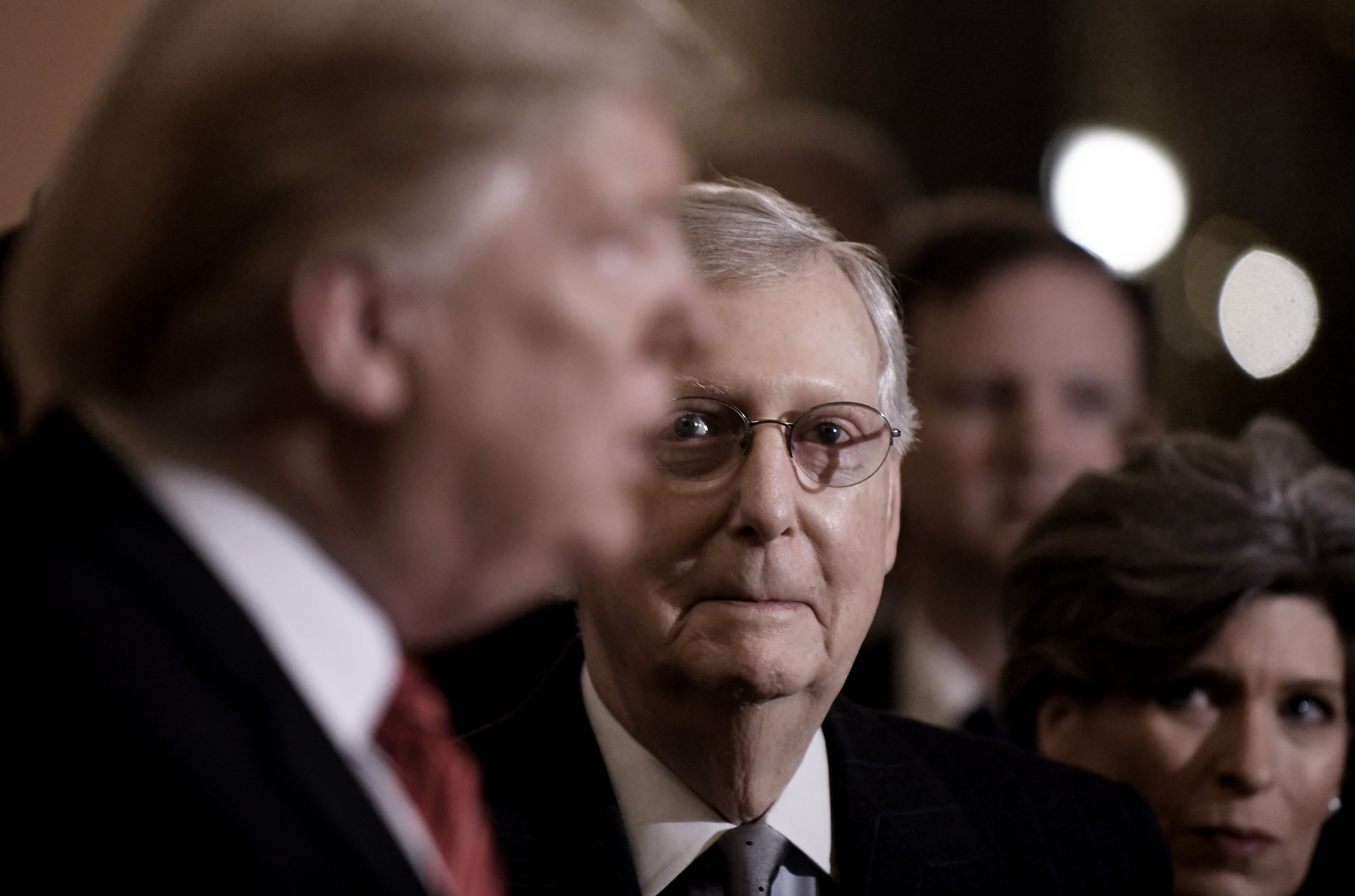Inspired to Serve: A Word for You When your questions pertains to the Holy Writ, seek a commentary from a Brother or a Sister in the Faith, or simply consult with the Holy Spirit:
The Wise Thing to Do
Thursday, December 16, 2021
click/copy/paste
Wednesday, December 15, 2021
To Share
Mitch McConnell Hated Donald Trump More than He Loved Being Majority Leader
In this daily series, Newsweek explores the steps that led to the January 6 Capitol Riot.
On December 15, the day after the Electoral College affirmed Joe Biden as the next president, Senate Majority Leader Mitch McConnell of Kentucky quietly told White House Chief of Staff Mark Meadows that he planned to acknowledge that former Vice President Biden had won the presidency. That was before he had an epic conversation with Donald Trump.
After the election, McConnell took up none of Donald Trump's questions about the elections, maintaining the position that the president had the right to challenge the results. But he had been silent on offering his former colleague and close friend Biden congratulations for the victory. Many interpreted McConnell's silence as tacit support for the president, and his lack of action annoyed many who thought that the senator should do something rather than humor the president.
McConnell certainly pursued his own agenda in publicly breaking with Trump. But it wasn't just self-interest. McConnell hated Trump with the kind of personal animus that is often disregarded in the conventional narrative, or in journalism, to explain people's motivations.

From the night of November 3, Election Day, according to Michael Wolff's "Landslide," McConnell was annoyed that Trump had done better than expected. When friends who asked which he preferred—a Trump victory and a Senate majority or a Trump loss and the loss of the Senate—McConnell chose the latter. He hated Trump even more than he loved being Majority Leader.
"The animosity between the two men, Trump and McConnell, was total," Wolff wrote. "The Republican leader's view of Trump was as virulent as the most virulent liberal's view: Trump was ignorant, corrupt, incompetent, unstable."
"Every day for the past four years," Wolff wrote, "McConnell had struggled not to bend—at least not privately to bend, as so many others had—to the headbanger in the White House.
"But it was impossible to overstate the hatred he had for Trump."
McConnell had not figured that Trump would be capable of ignoring the reality of his loss, that even after every court rejected his claims and the Electoral College voted, that Trump would still upend the entire country on behalf of his ego.
McConnell went to the Senate floor.
"Many millions of us had hoped that the presidential election would yield a different result. But our system of government has processes to determine who will be sworn in on January 20.
"Trump claims the election was stolen. The assertions range from specific local allegations to constitutional arguments to sweeping conspiracy theories ... nothing before us proves illegality anywhere near the massive scale—the massive scale—that would have tipped the entire election.... If this election were overturned by mere allegations from the losing side, our democracy would enter a death spiral.
"The Electoral College has spoken. So today, I want to congratulate President-elect Joe Biden."
Trump called McConnell immediately to excoriate the Senate leader, screaming obscenities at the second-most-powerful Republican in the nation. "Disloyal! Weak!," he tore into McConnell, according to Bob Woodward and Robert Costa's "Peril."
"It was a road-rage confrontation," Wolff wrote, Trump questioning McConnell's honesty, competence, patriotism and manhood. McConnell ended the call. "You lost the election. The Electoral College has spoken," he said.
The ugly exchange was okay, McConnell later told aides, because it would be the last time he ever had to speak to the president (and indeed the two would not speak again for the remainder of the Trump presidency).
McConnell later told the Republican caucus in the Senate that the election fight was over, urging unanimity in not supporting the president's efforts. There was only a perfunctory January 6 ceremony left.
Interest in the Senate for any kind of action to challenge the Electoral College seemed nonexistent. But in the House of Representatives, that wasn't the case. Nearly two-thirds of House Republicans, including Minority Leader Kevin McCarthy, supported a "friend of the court" briefing backing the Texas lawsuit before the Supreme Court.
The national council of the Three Percenters issued a statement about the Electoral College vote: "We stand ready and are standing by to answer the call from our President should the need arise that We The People are needed to take back our country from the pure evil that is conspiring to steal our country away from the American people. We are ready to enter into battle with General Flynn leading the charge. We will not act unless we are told to. And we will not act on our own as TTPO [The Three Percenters Original], but rather as a united body of American patriots."